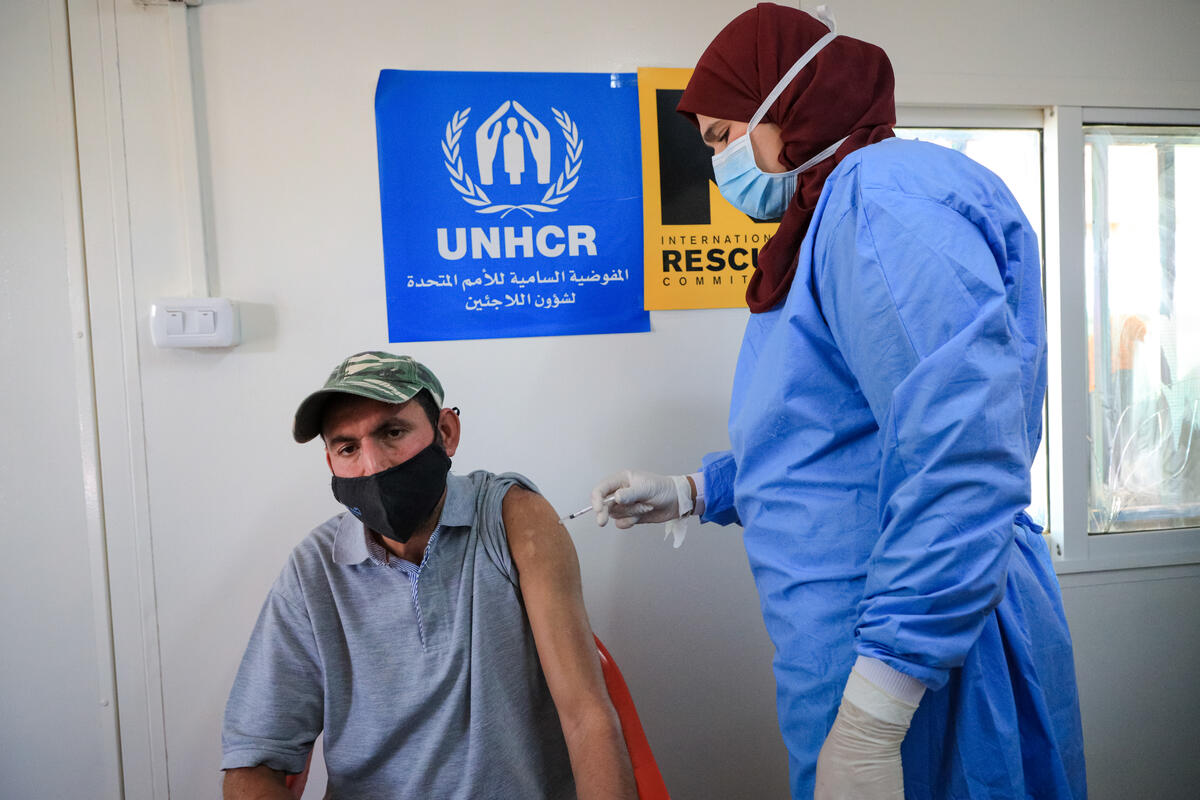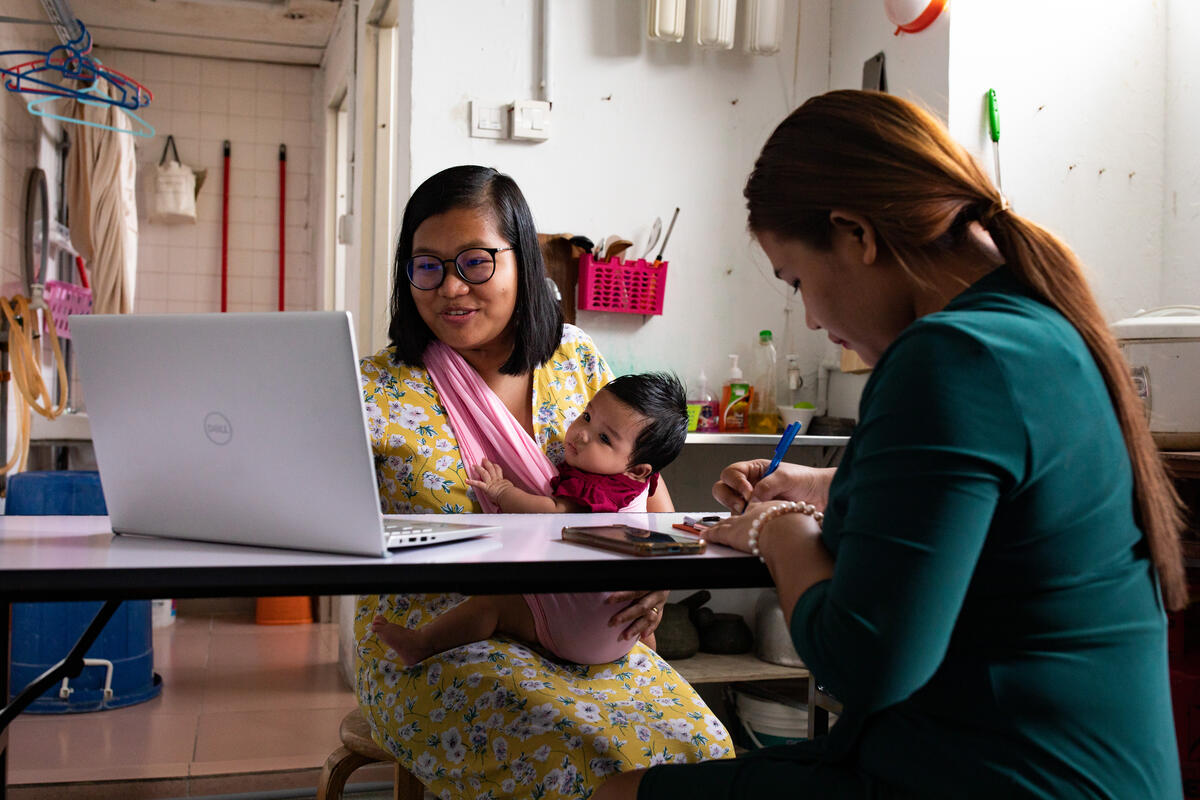Statement: No-one is safe until everyone is safe – why we need a global response to COVID-19
Statement: No-one is safe until everyone is safe – why we need a global response to COVID-19

Equitable vaccine distribution is a humanitarian imperative
There is a choice. The world of the next 10 years can be one of greater justice, abundance and dignity. Or it can be one of conflict, insecurity and poverty.
We are at a turning point. COVID-19 has been a truly global crisis in which we all have shouldered a burden. In many cases this has caused us to reflect on those longer injustices that have perpetuated in parts of the world where the pandemic is yet another layer of misery, instability and unrest. These inequalities have been exposed and exacerbated by the impact of the pandemic, both between and within countries. The effects will be felt on a global scale for years to come.
The impact of a catastrophe like the COVID-19 pandemic is measured in the tragedy of individual loss and death, as well as the national and global disruption to almost every part of life. No country in the world has been untouched.
Variants of the virus, potentially more infectious and resistant to vaccines, will continue to threaten us if they are not controlled now.
Those of us who have signed this declaration represent organizations with roots in communities across the world. We work closely with those affected by conflict, disaster and famine, and know the immense challenges they face – but also of their resilience even in the worst of situations.
In 2021, the world economy is facing the worst downturn since 1945. For some countries this will sharply increase poverty and suffering. For others it means hunger and death. The fallout from the pandemic will be with us for a long time to come. There will be a continued economic impact, with all the human suffering that brings. A generation of children, especially girls, have left school and will not return.
The world is facing the challenge of how to reverse these devastating dynamics with health being a key part of such a response. We advocate here for ‘Health for All’, where each person’s life is valued, and every person’s right to healthcare is upheld. People not only need vaccinations – they need access to healthcare workers who are skilled and equipped to deliver adequate medical support.
We need to build a world where each community, regardless of where they live, or who they are, has urgent access to vaccinations: not just for COVID-19, but also for the many other diseases that continue to harm and kill. As the pandemic has shown us, in our interdependent world no one is safe until everyone is safe.
We have a choice: vaccine nationalism or human solidarity.
Thanks to effective international action, several vaccines have been produced. The World Health Organisation, GAVI and CEPI are leading the COVAX initiative, which is currently the best effort we have to ensure that vaccines reach people around the world. However, COVAX is only intended to cover 20% of the global population– the most vulnerable in lower-income countries – by the end of 2021 and it is not yet clear if it will meet this target. Meanwhile studies show that if we focus only on vaccinating our own populations, the world risks global GDP losses of up to $9.2 trillion (with half of that cost being incurred by high income countries) this year alone.
But it is not just a matter of money. In order to achieve wider global vaccination, complex logistical, infrastructure and scaling issues must be addressed. The Access to COVID-19 Tools (ACT) Accelerator is focused on providing a means to accelerate the development, manufacturing and distribution of COVID-19 diagnostic and treatment products. The ACT recognizes and aims to address the requirement for information sharing - whether about technology, intellectual property or manufacturing.
However, more needs to be done. The sharing of information, the transfer of technology and the strengthening of manufacturing processes, to name a few, require the active involvement of States and the private sector.
We therefore call on world leaders to:
- Ensure equitable access to vaccines between countries by providing vaccines, sharing knowledge and expertise, and fully funding the Access to COVID-19 Tools (ACT) Accelerator, which is working to provide equitable access to and implementation of COVID-19 diagnostics, therapeutics, and vaccines.
- Ensure equitable access to vaccines within countries by ensuring all sectors of the population are included in national distribution and vaccination programs, regardless of who they are or where they live, including stigmatized and marginalized communities for whom access to healthcare might not be straightforward.
- Support countries financially, politically and technically to ensure that curbing COVID-19 is not a standalone goal, and instead is one important element of a broader health strategy, implemented alongside communities to bring longer-term improvements to people’s health and access to healthcare. We are committed, in our different institutions, to offering all the help we can to support actions by communities and authorities.
It is time for decisive leadership. Countries and organizations across the world have a once-in-a-generation opportunity to address global inequality and reverse some of the fallout from the past year. In doing so, they will bring hope not only for the poorest in the world, but for us all.
The Most Reverend Justin Welby, Archbishop of Canterbury
Peter Maurer, President of the International Committee of the Red Cross
Bishop Ivan M Abrahams, General Secretary of the World Methodist Council
HE Elder Metropolitan Emmanuel of Chalcedon, Ecumenical Patriarchate
The Reverend Dr Chris Ferguson, General Secretary of the World Communion of Reformed Churches
Dr Tedros Adhanom Ghebreyesus, WHO Director-General
Filippo Grandi, United Nations High Commissioner for Refugees
Henrietta H. Fore, Executive Director, UNICEF
The Reverend Dr Martin Junge, General Secretary of the Lutheran World Federation
Dr Azza Karam, Secretary-General, Religions for Peace
Francesco Rocca, President of the International Federation of Red Cross and Red Crescent Societies
Rabbi David Rosen, Co-President, Religions for Peac
Sheikh Ahmed al-Tayeb, The Grand Imam of al-Azhar
HE Cardinal Peter Turkson, Prefect of the Dicastery for Promoting Integral Human Development, Rome








